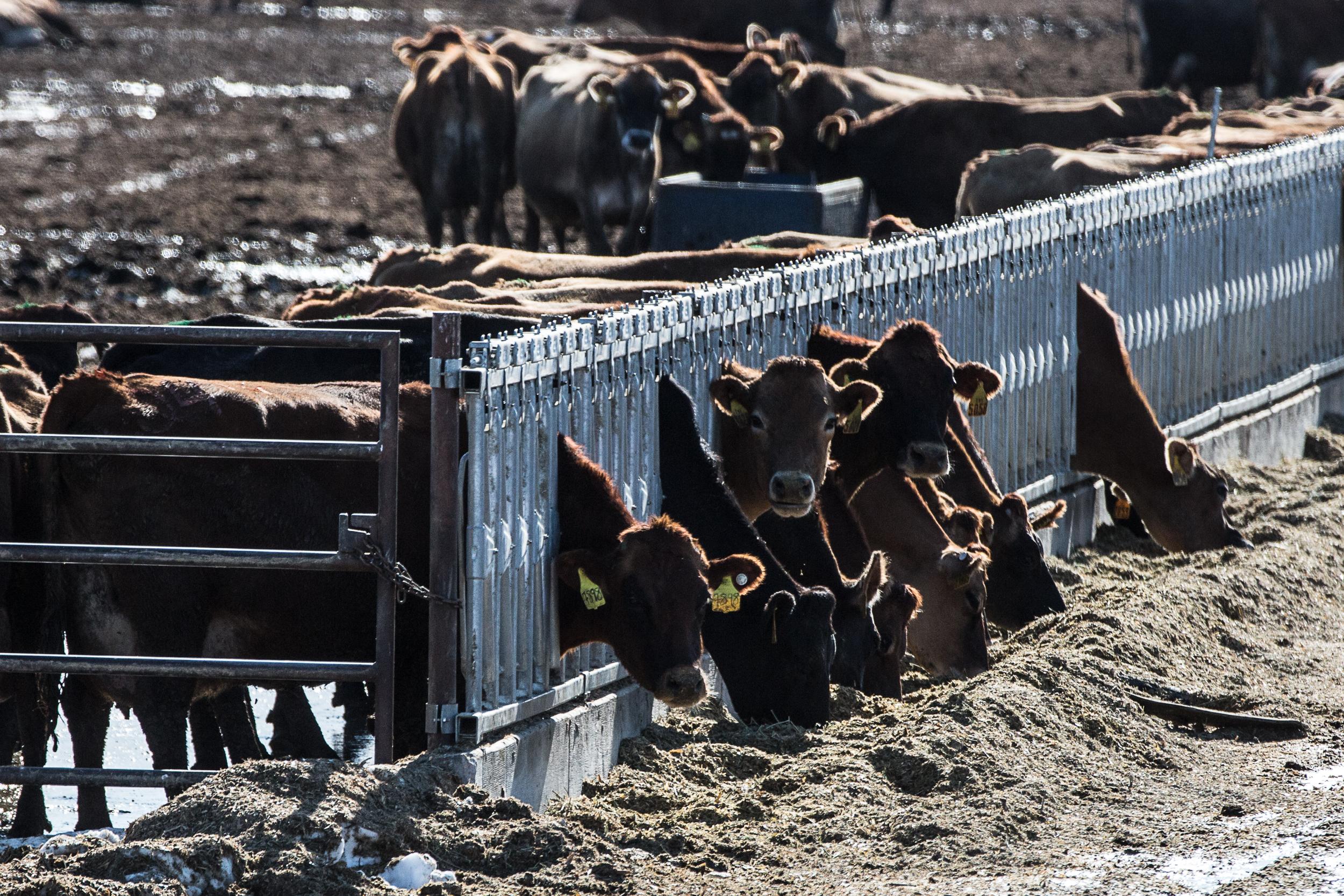
Steak will be on the menu in conservative strongholds across Colorado on March 20, thanks to a proclamation from the governor’s office urging just the opposite.
Late last month, word started to get out that Gov. Jared Polis has proclaimed the 20th as MeatOut Day. The day, which was started in 1985 by the Farm Animals Rights Movement, is meant to encourage non-vegetarians to consider moving toward a plant-based diet.
When asked about the designation, Conor Cahill, the governor’s spokesman, said the office “gets hundreds of requests for proclamations throughout the year and rarely declines these non-binding ceremonial proclamations that get auto-penned by the Governor.”
Polis himself eats meat, although his fiance, first gentleman Marlon Reis, is a vegan and animal rights advocate.
While the declaration has no binding impact on what Coloradans choose to eat on the 20th, the suggestion that the governor would elevate an effort to get people to say goodbye to beef, if only for a day, quickly rankled Colorado’s ranching sector and its defenders.
The Colorado Cattlemen’s Association responded by urging people to celebrate a “Meat In” on the 20th. “On this day, CCA encourages Colorado to meet in a restaurant and order your favorite meat dish, meet your family and friends for a meal featuring meat!” states the group’s announcement.
Already, numerous conservative groups — and Weld County’s Board of Commissioners — have answered that call, pledging to hold cookouts heavy on the animal protein. Nebraska Gov. Pete Ricketts issued his own proclamation, declaring March 20 “Meat on the Menu” day for his state.
The backlash doesn’t surprise CU professor Heide Bruckner, whose research involves the intersections of food and identity.
“Meat has always been politicized and meat-eating tied to a lot of perceptions of American identity and masculinity, especially here in the American West,” she said.
Bruckner favors the idea of a MeatOut Day, as a way to introduce people to the idea that they can reduce the amount of meat in their diet without becoming a full vegetarian.
“There is a large area in between that all-or-nothing approach that we really should explore,” she said. “Realistically, one day isn’t radically going to shift perception, change behaviors or reduce meat consumption. But I do believe it can provide an opening for some to consider the role that meat plays in their diet.”
The governor’s office notes that Polis issues numerous proclamations each year celebrating the state’s agricultural sector, including Colorado Ag Day, Farm Bureau Day, and Rocky Ford Cantaloupe Day.
But that has not stopped the criticism.
After word of the proclamation got out, several state Senators spoke out against MeatOut Day on the chamber floor.
“For our governor to say that we should have a meat-free day is the last straw. It's just one more attack against my county,” said Republican state Sen. Barbara Kirkmeyer of Weld County. “Standing up for agriculture in this state is extremely important. It is the No. 2 economic driver in this state.”
While most of the opposition has come from conservative critics, Democratic state Sen. Rhonda Fields of Aurora also declared MeatOut Day a tone deaf move, noting that many of her constituents live in food deserts, where nutritious vegetarian options aren’t available.
“When I drive down Colfax coming from Aurora, I see people begging every day for food. And they’re not saying, ‘I want a carrot.’ They’re asking for a dollar or two or some change so they can feed themselves,” said Fields. “There is an issue as it relates to food insecurity in the state of Colorado. We don’t have the luxury in this COVID-19 environment to say, ‘we have a holiday where you can’t eat meat.’ It might be a good idea, but I think it’s the wrong approach.”








